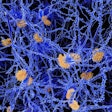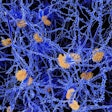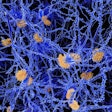
Experts have raised concerns about Quest Diagnostics’ $399 consumer-initiated Alzheimer’s disease test, telling 360Dx that it is unclear whether the product is accurate enough to support its use.
The development of drugs capable of slowing the progression of Alzheimer’s suggests the need for tests that help detect the disease early will increase in the coming years. Test developers are responding with blood-based diagnostics that use mass spectrometry to measure amyloid beta, a protein involved in the pathogenesis of Alzheimer’s.
Quest moved into the consumer space this year, offering an amyloid beta test on its website to enable people with mild cognitive impairment or decline and one or more risk factors to get tested. Michael Racke, medical director for neurology at Quest, discussed the need addressed by the product.
“I've always been of the opinion that the more knowledge people have about their health, the better it is. It would certainly be better if you [got tested] through your primary care [physician], because it is someone who knows you and is perhaps familiar with your circumstances … [but] in this day and age there are a lot of people who are comfortable with using [a consumer-initiated test],” Racke said.
However, as with any test, there is a risk that the product will unnecessarily stress patients and burden healthcare systems if it delivers false positives. Suzanne Schindler, associate professor of neurology at the Washington University School of Medicine in St. Louis, discussed how accurate amyloid beta tests need to be.
“There's only about a 10% difference between positives and negatives, and so if you are off by a little bit or your assay drifts, then you can really misclassify a lot of people. I don't know how rigorous Quest has been in dealing with these issues,” Schindler said.
One concern, as Schindler and others note, is that Quest has yet to share an in-depth, peer-reviewed look at the performance of the test. Quest presented a poster at a conference last year and aims to release data in a peer-reviewed publication, but for now, people outside of the company lack the information they need to assess the test.
“With this particular test, there is just very, very little information. So, one concern is the accuracy of the results. It's hard to guide patients on what the test really means,” Michelle Mielke, a professor of epidemiology and prevention at Wake Forest School of Medicine in Winston-Salem, NC, said.



















